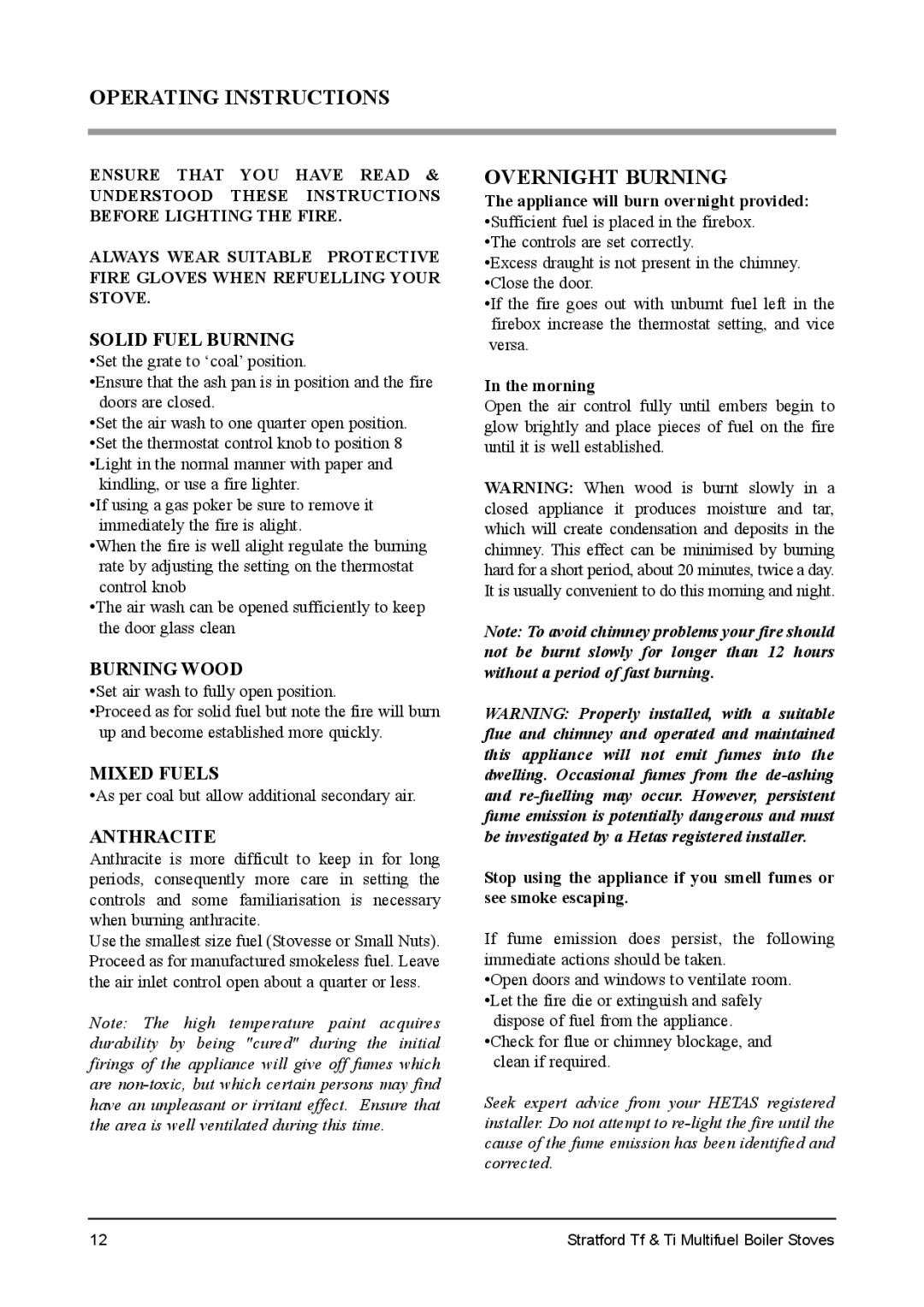Stratford Tf, Stratford Ti specifications
Aarrow Fires is renowned for its innovative and high-quality heating solutions, particularly the Stratford Ti and Stratford Tf models. These contemporary wood-burning stoves combine advanced technology with aesthetic appeal, making them excellent choices for both functionality and style in any home.The Stratford Ti model is distinguished by its sleek design and robust construction. It features a large glass window that provides an unobstructed view of the burning flames, creating a warm and inviting atmosphere. One of the standout characteristics of the Stratford Ti is its efficiency. With an impressive efficiency rating, this stove ensures that more heat is generated from every log used, which means less frequent reloading and better fuel economy. The air wash system helps to keep the glass clean, maximizing the visual experience and reducing maintenance.
The Stratford Tf, on the other hand, is an equally impressive model with unique features that cater to diverse heating needs. It is designed with a wider firebox, allowing for larger logs and longer burn times. This characteristic makes it ideal for those who prefer a more extended heating experience without the need for constant refueling. The Stratford Tf also incorporates Aarrow's primary and secondary air controls, which provide users with greater control over the burn rate and heat output.
Both models employ cutting-edge technologies, including a sophisticated combustion system. This system ensures that fuel is consumed efficiently, resulting in fewer emissions and enhanced environmental performance. The stoves meet stringent eco-friendly standards, making them a sustainable choice for modern homes.
In terms of aesthetics, the Stratford Ti and Tf models excel with a variety of finishes and options, including traditional and contemporary styles. Whether placed in a rustic cabin or a modern apartment, these stoves complement any interior decor.
Safety is another priority for Aarrow Fires, as both stoves are designed with robust features to ensure safe operation. Built-in heat shields and proper airflow designs help minimize the risk of overheating and ensure that the surrounding areas remain cool to the touch.
In summary, the Aarrow Fires Stratford Ti and Tf models represent the best in wood-burning stove technology. With their impressive efficiency, stunning design, and user-friendly features, these stoves are perfect for anyone seeking a reliable heating solution that adds value and warmth to their living space.

